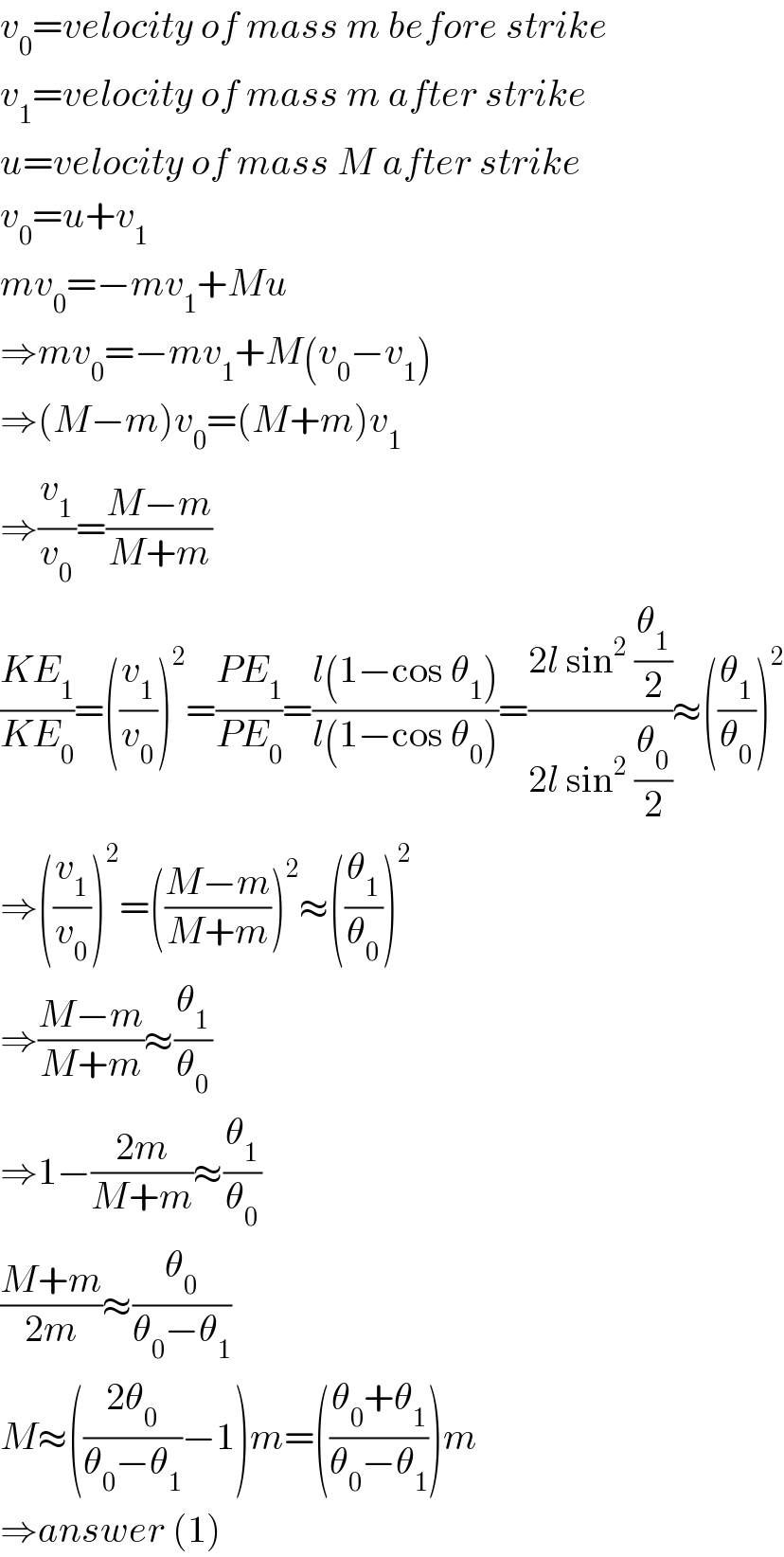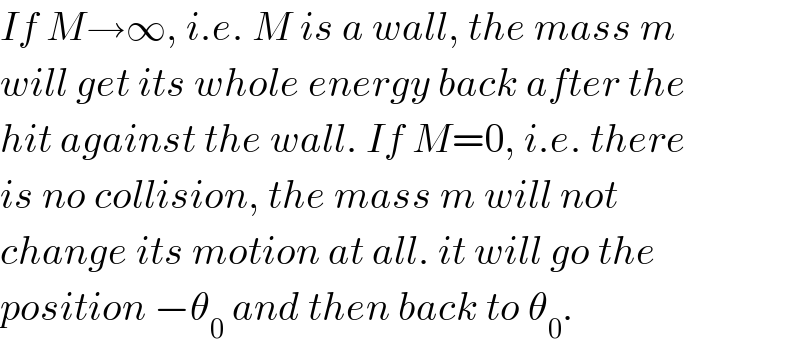
Question and Answers Forum
Previous in Oscillation and Waves Next in Oscillation and Waves
Question Number 54901 by rahul 19 last updated on 14/Feb/19

Commented by rahul 19 last updated on 14/Feb/19

Answered by mr W last updated on 14/Feb/19

Commented by Otchere Abdullai last updated on 14/Feb/19

Commented by rahul 19 last updated on 14/Feb/19

Commented by mr W last updated on 14/Feb/19

Commented by rahul 19 last updated on 14/Feb/19

Commented by mr W last updated on 14/Feb/19

Commented by rahul 19 last updated on 14/Feb/19

